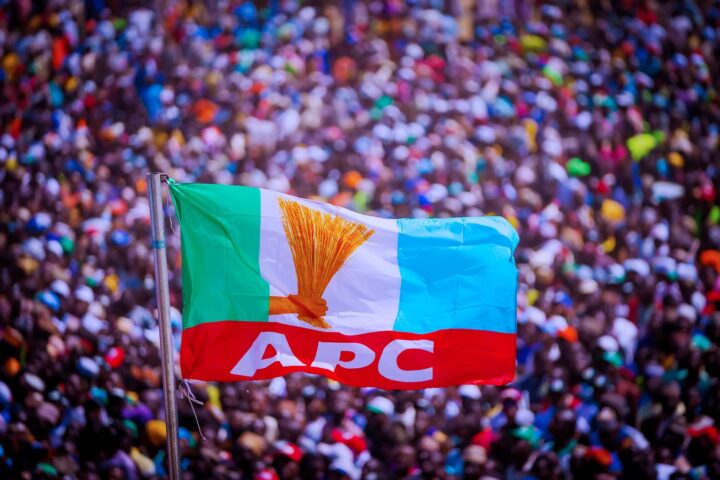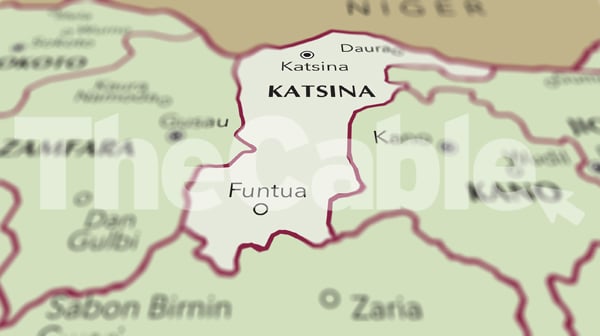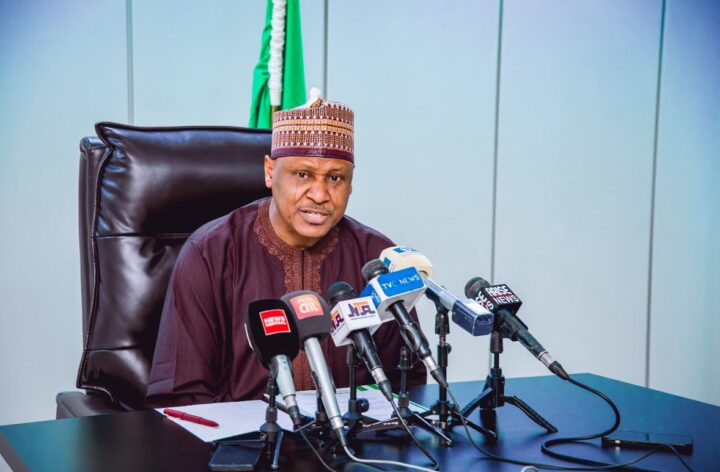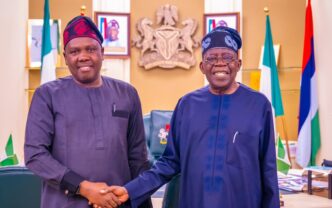APC flag
The All Progressives Congress (APC) has accused Peter Obi of “mobilising outrage” against the administration of President Bola Tinubu.
The ruling APC described Obi’s recent comments on the state of the economy as “an admixture of half truths, blatant distortions and misinformation”.
In a statement published via X on Monday, Obi said the country’s gross domestic product (GDP) declined in 2015, after it recorded growth pre-2014.
“When Nigeria returned to democratic governance in 1999, it maintained an average GDP growth of about 6.72% for 16 years from 1999-2014,” Obi had written.
Advertisement
“The impressive growth trajectory, unfortunately, was not sustained by the then-new government and our GDP growth collapsed to 2.79% in 2015 and then sank into a recession in 2016 with a negative growth of -1.58% and 0.82% in 2017.”
In a statement on Tuesday, Felix Morka, APC national publicity secretary, said Obi’s “warped conclusion” that the country’s economic woes were caused by the APC-led administration is “highly revisionist, dishonest, distorted and deliberately misleading”.
Morka said expecting Tinubu to achieve “total transformation of Nigeria” in one year is the “height of disgraceful hypocrisy”.
Advertisement
“His warped conclusion that Nigeria’s economic crisis was caused by nine years of APC-led administration is a highly revisionist, dishonest, distorted and deliberately misleading assessment of the country’s economic trajectory in the last decade,” the statement reads.
“He opined, rather mischievously, that no efforts were being made by President Bola Ahmed Tinubu’s administration to tackle poverty and unemployment in the country.
“The facts tell a far more complex and different story. The country’s economic decline began under the watch of the Peoples Democratic Party (PDP) with GDP growth plummeting from 7.98% in 2010 to 2.79% in 2015.
“And since 2015, the global oil price crash, geopolitical tensions, climate change, global COVID pandemic and rising population have all taken a toll on Nigeria’s economy that is almost entirely dependent on drastically reduced oil export earnings.
Advertisement
“Economic challenges and hardship are a stark reality of most countries of the world today, both developed and developing.
“It is an existential condition that must be tackled and transformed. This is an arduous task that requires collective patriotic collaboration.”
Add a comment








